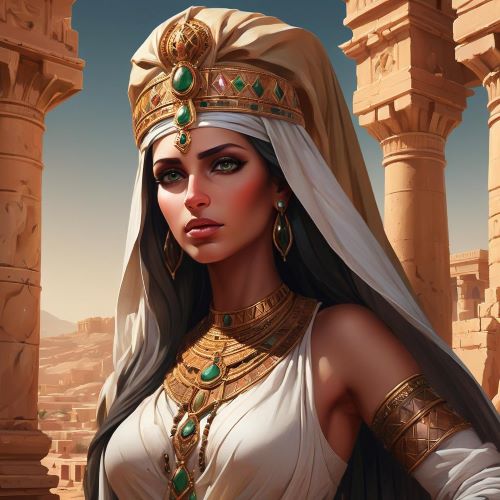Libyan Mythology
Libyan mythology, a lesser-known yet rich aspect of North African culture, reflects the diverse history and influences of the region. As a land once home to Berber tribes and later shaped by Phoenician, Greek, and Roman conquests, Libya’s mythology is a blend of indigenous beliefs and external mythological elements. The ancient Berber people, also known as the Amazigh, played a key role in shaping the mythology of Libya, with their deities and spirits deeply connected to nature, the desert, and the mountains. Stories of powerful gods, spirits, and legendary figures filled the beliefs of the ancient Libyans, blending local traditions with foreign influences.
At the heart of Libyan mythology is the figure of Amon, a god who was worshipped by both the ancient Libyans and Egyptians. Amon was associated with fertility, life, and the sun, and his worship spread throughout North Africa. The Siwa Oasis, located in western Egypt near the Libyan border, was home to the famous Oracle of Amon, a site revered for its spiritual importance. In addition to Amon, the Libyans believed in a wide range of local spirits that protected their lands and people. These spirits were believed to inhabit natural elements such as mountains, caves, and bodies of water, reflecting the deep connection between the Libyan people and their environment.
Greek and Roman myths also left their mark on Libyan mythology, especially during the periods when these civilizations controlled parts of the region. The Greek myth of Antaeus, a giant who drew strength from the earth, was said to be linked to the Libyan landscape. According to legend, Antaeus was the son of Poseidon and Gaia, and his invulnerability in battle came from his contact with the land. The Greek hero Heracles (Hercules) ultimately defeated Antaeus by lifting him off the ground and breaking his connection to the earth, a story that demonstrates how local myths were often woven into broader Mediterranean narratives. This fusion of cultures enriched Libyan mythology and reflected the region’s complex history of interaction with foreign civilizations.
In modern times, Libyan mythology continues to influence cultural traditions and practices, particularly among the Amazigh people, who maintain their distinct cultural identity despite centuries of foreign rule. While much of the original mythological framework has been lost or transformed, echoes of ancient Libyan beliefs can still be seen in traditional festivals, rituals, and folklore. As Libyans reconnect with their ancient heritage, interest in the myths and stories of the past has grown, offering a deeper understanding of the country’s historical and cultural roots. Libyan mythology remains a fascinating window into the diverse and dynamic history of North Africa, blending indigenous and foreign traditions into a unique tapestry of belief.

